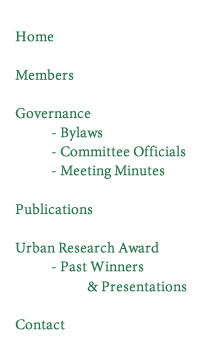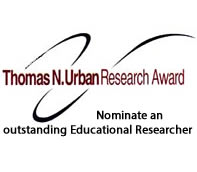
IAE Publications
Occasional Papers
In 1999, the Academy initiated the publication and dissemination of an Occasional Research Paper Series. Authors present up-to-date research summaries on topics important to the future of preK-14 education in Iowa. The papers are intended to inform Iowa educational scholars, leaders, and policy makers.
How Effective are the NSSE Benchmarks in Predicting Important Educational Outcomes?
Dr. Ernest T. Pascarella, University of Iowa -- July 2011
Dr. Tricia A. Seifert, University of TorontoOne of the long-standing conversations in postsecondary education over the last three decades has focused on the need to hold colleges and universities accountable for the quality of undergraduate education. Beyond simply knowing the characteristics of entering students and graduation statistics, a growing segment of the population has become interested in knowing what students actually learn in college.
When Best Practices Sometimes Aren't
Dr. Peter Hlebowitsh, University of Iowa -- July 2011The idea here is reasonable: Successful teachers must be doing things that all teachers should consider doing, so let’s
identify their practices, distill them into a framework that we might call “best practices” and find a way to bring these insights to the over three million teachers who populate our public schools.
Real Reform in Science Education Takes More than "Stirring the Pot"
Dr. Robert E. Yager, University of Iowa -- July 2011Too often reform efforts in science education classrooms consider only the major concepts that define what is to be taught with too little attention to how it is taught! Too often assessment is based on student performances in class and on
examinations that measure the retention of information gained from teacher talk, class recitations, and textbook coverage.
Revolutions and Evolutions in Current Educational Testing
Dr. Robert L.Brennan, University of Iowa -- June 2004Educational testing is currently undergoing both revolutions and evolutions that will have far-reaching and long-term consequences. This paper treats three major testing topics: accountability in the K-12 arena with a focus on No Child Left Behind, computerization, and litigation/notions of fairness.
If the Underlying Premise For No Child Left Behind Is False, How Can that Act Solve Our Problems?
Dr. David Berliner, Arizona State University -- June 2004The premise underlying the No Child Left Behind Act of 2002 is that America's schools are failing. This premise is examined by looking at several trustworthy indicators.
What Does Research on Constructivist Education Tell Us about Effective Schooling?
Dr. Rheta L. DeVries, University of Northern Iowa -- June 2002Research on the effectiveness of constructivist education is reviewed. Results indicate better child outcomes for constructivist classrooms when compared to non-constructivist classrooms. Practical implications for schools are discussed.
Achieving the Visions of the National Science Education Standards
Dr. Robert E. Yager, University of Iowa -- March 2002Current realities of science education in classroom practice and teacher education programs are explored. Recommendations for improving science teaching are delineated and exemplary science education programs are identified.
Children's Motor Behavior: Implications for Teachers, Coaches, and Parents
Dr. Jerry R. Thomas, Iowa State University -- August 2001The impact of children's growth and gender difference on motor performance is explored. The development of motor control and sports expertise is discussed. Implications of the research findings for teachers, coached, and parents are presented.
Inclusion: Rhetoric and Reality Surrounding the Integration of Students with Disabilities
Dr. Kenneth A. Kavale, University of Iowa -- May 2000Issues surrounding the integration of students with disabilities into general education are explored. Research related to perceptions and attitudes about inclusion, the tenor of the general education classroom, and the preparation and ability of general education teachers to deal effectively with special education students is summarized.
Community College Effects on Students: A Review of Recent Evidence
Dr. Ernest T. Pascarella, University of Iowa -- August 1999Findings suggest that community colleges may provide a cost-effective way for substantial numbers of students to obtain the first two years of post-secondary education without sacrificing the intellectual/developmental impact of the college experience or their relative competitiveness in the marketplace.
Policy-Related Papers
The Academy launched a Policy-Related Paper Series in 2003. These brief papers present policy positions on topics of contemporary importance in Iowa education. They are designed to promote discussion and debate among education scholars, leaders, and policy makers in Iowa.
No Child Left Behind and the End of Public Schooling
Dr. John Smith, University of Northern IowaMany view the No Child Left Behind (NCLB) legislation as an attempt to reform the public schools. This view is incorrect because NCLB is not about public school reform - it is about seriously diminishing and possibly eliminating the role of public schooling in American society.
College Selectivity and Good Practices in Undergraduate Education
Dr. Ernest T.Pascarella, University of IowaIt is a common belief that academic selectivity of students entering an institution's undergraduate program implies a greater liklihood of "quality" undergraduate education. This paper examined the relationship between the academic selectivity of a college and a range of empirically validated good practices in undergraduate education.
Iowa Academy of Education
210 Lindquist Center, University of Iowa, Iowa City, IA 52242
Phone 319.335.5954 Fax 319.384.0505
Copyright © 2014 The University of Iowa College of Education

